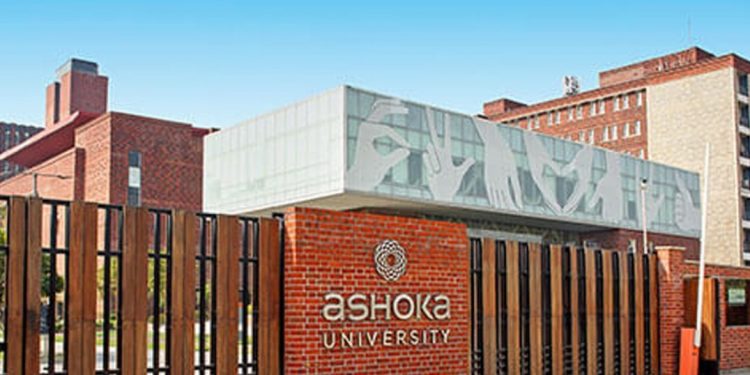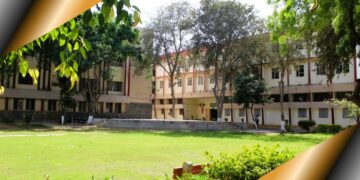The week following the resignation of Prof Pratap Bhanu Mehta from Ashoka University on March 15, shook the ground for the young university with its lofty foundations and credentials of a carefully crafted reputation of over the last seven years as ‘country’s first wholly — American Ivy league-style — liberal arts university’, coming under cloud for not asserting its autonomy or defending the academic freedom. The outrage like wildfire was unforgiving and tough to douse.
Mehta, an eminent public intellectual, political scientist and is also a former president of Delhi-based think tank Centre for Policy Research and member of National Knowledge Commission. He after a stint as the second vice-chancellor of Ashoka University from 2017-19, was a professor of political science at the university when he resigned in middle of the session ‘at the insistence of founders’ who saw him a ‘political liability’. Some reports suggest his exit was being pursed for a while as it would ease the bureaucratic hurdles involved in the planned expansion of the university.
 Pratap Bhanu Mehta, an outspoken critic of current government and one of the highly acclaimed and quoted dissenter, who has recently even questioned the judicial verdicts in his writings, was apparently shown the door is an open secret even though he was given a safe passage instead of a sack. In his resignation letter Prof Mehta wrote: “After a meeting with Founders it has become abundantly clear to me that my association with the University may be considered a political liability. My public writing in support of a politics that tries to honour constitutional values of freedom and equal respect for all citizens, is perceived to carry risks for the university. In the interests of the University I resign.”
Pratap Bhanu Mehta, an outspoken critic of current government and one of the highly acclaimed and quoted dissenter, who has recently even questioned the judicial verdicts in his writings, was apparently shown the door is an open secret even though he was given a safe passage instead of a sack. In his resignation letter Prof Mehta wrote: “After a meeting with Founders it has become abundantly clear to me that my association with the University may be considered a political liability. My public writing in support of a politics that tries to honour constitutional values of freedom and equal respect for all citizens, is perceived to carry risks for the university. In the interests of the University I resign.”
Two days after Indian Express broke the story of Mehta’s resignation, Arvind Subramanian, the former chief economic advisor (2014- 2017) who had joined last year Ashoka University as a professor in the Department of Economics and the Founding Director of the new Ashoka Center for Economic Policy, also sent in his papers in protest. The two high profile resignations not only hogged national and international headlines but sparked a fierce debate on academic freedom and how much autonomy a private university really has in India. In addition, 150 leading academics from Yale, Harvard, Columbia, MIT, LSE – among others – registered their protest.
Within university campus itself the faculty and students were quite peeved and jolted by the developments and erupted in mass protest. As many as 90 faculty members of the university in a collective letter to the university vice-chancellor, Malabika Sarkar, said it ‘seems quite plausible that his resignation was a direct consequence of his role as a public intellectual and critic of the government. We are greatly troubled by this scenario. Even more troubling is the possibility that our university may have acceded to pressure to remove Professor Mehta or to request, and accept, his resignation.’
Students of the university (Student Government) , in fact, led the protest threatened to launch a movement against the vice chancellor if their three-point demand (public acknowledgement by the founders of what Prof Mehta has indicated, an open meeting with study body and divesting administrative powers and roles from founders of university to elected representatives of faculty) on the issue and is not met. The vice chancellor has now given a written assurance to the “student government” stating that a student nominated by them would join all meetings of the board of management as an invitee member. The agitation has been since called off.
Raising the pitch on important issue of university governance, the students said that ultimately they are responsible for the greater outcomes of this university’s education, taking forward all the skills, knowledge, and values they acquire into the outside world. The agitating students raised the need for fellow students to be more invested in the future of this university, asking if professors will teach with the same academic liberty and “whether future students will get to sit in the same classrooms as us.”
Caught in a mounting criticism, the University admitted that there have been “lapses in institutional processes” surrounding the resignations of two top academics citing free-speech curbs. “We acknowledge that there have been some lapses in institutional processes which we will work to rectify in consultation with all stakeholders. This will reaffirm our commitment to academic autonomy and freedom which have always been at the core of the Ashoka University ideals,” read a joint statement issued by the Chancellor, Vice-Chancellor, the Chairman of the Board of Trustees (Ashish Dhawan) of Ashoka University, Prof. Pratap Bhanu Mehta and Prof. Arvind Subramanian.
It is clear from the statement that the two professors aren’t returning back anytime soon. “Pratap and Arvind would like to emphasize that Ashoka University is one of the most important projects in Indian higher education. They are sad to be leaving Ashoka, especially its outstanding students and faculty. They continue to believe strongly that Ashoka University should embody a liberal vision and commitment to academic freedom and autonomy. And they remain lifelong friends and well-wishers of the institution and are committed to its success wherever they are,” the statement added.
Ashoka University, Sonipat, the largest ever collective philanthropy initiative in the history of Indian education entirely crowd-funded with more than 50 philanthropists, businessmen debuted as a bright spot in the provision of liberal multidisciplinary education with a promise to develop country’s brightest young minds to engage with challenges of change and leadership. If it were to falter like this and crawl when asked to bend as some commentators put it, then those lofty aspirations and expected outcomes would never come about. It will also deter people of seeing value in creating private universities in India as if nothing can sustain without patronage of the elected powers.
In a column over the crisis triggered by Prof Mehta’s resignation, Prof Aseem Shrivastava, who teaches the courses on ‘Ecosophy’ in the Young India Fellowship of Ashoka University writes, “I have almost come to believe in the myth of corporate liberalism. And then comes Prof. Mehta’s resignation to remind us of the lurking reality of corporate totalitarianism. It seems it never went anywhere. It just dons liberal attire occasionally to brand its products. When it comes to the university, once the educational market is secured, it resumes its predatory habits and a high-cost model of learning is confidently installed in a poor country.” Saying that much like others universities today are under siege from corporations the world over. “The viral spread of the internet – especially booming in the pandemic-afflicted age of zoom – may actually put an end to it altogether in some not-so-distant future. Or transform its character to such a degree that only the ‘servile arts’ of technical training (in engineering or medicine, for instance) will be taught, not the pretentious ‘liberal arts’. It would be in the fitness of things for the death of the humanities to presage the end of humanity itself,” he adds. Quoting Rabindranath Tagore, Shrivastava further writes, “Before Asia is in a position to co-operate with the culture of Europe, she must base her own structure on a synthesis of all the different cultures which she has. When, taking her stand on such a culture, she turns toward the West, she will take, with a confident sense of mental freedom, her own view of truth, from her own vantage-ground, and open a new vista of thought to the world. Otherwise, she will allow her priceless inheritance to crumble into dust, and, trying to replace it clumsily with feeble imitations of the West, make herself superfluous, cheap and ludicrous. If she thus loses her individuality and her specific power to exist, will it in the least help the rest of the world? Will not her terrible bankruptcy involve also the Western mind? If the whole world grows at last into an exaggerated West, then such an illimitable parody of the modern age will die, crushed beneath its own absurdity.”
In a piece on the issue Swaminathan S Anklesaria Aiyar adds some pragmatic advise to plug the crisis, “Having 15 business donors may look like diversification, but does not diversify outcomes: All 15 can stop donations simultaneously. The donor base should be expanded to non-business foundations, foreign donors, alumni donations and crowdfunding.”
The University will need time to come out of this episode and then only it will be known if the values for which it stands are still intact if some lessons from this episode are learnt…
By Autar Nehru












